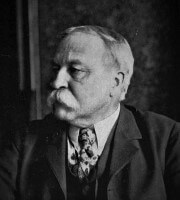by T. Wignesan
The Evening Soup, Translation of Paul Verlaine’s La soupe du soir
To J.-K. Huysmans
(Verlaine here paints a stark tableau of working-class or peasant life shorn of any symbolic or imaginary references. Even if I see no reason to keep to the strict rhyme scheme, I have nevertheless tried – wherever possible - to retain the quatrain form. Yves-Alain Favre, the editor of Verlaine’s complete works, says that some think the beginning resembles Victor Hugo’s « Pauvres Gens » (Poor People). T. Wignesan)
The day dims in the narrow and cold room where the man
Just returned, in a shirt covered with snow, and for
The last three days has not uttered a word,
The woman takes fright and gesticulates warning the kids by signs .
One solitary bed, a dislocated sideboard, four chairs,
Curtains once white soiled by the blood of bugs,
A table which sags on one of its legs –
The whole wreaking with an air gone long stale
The man with the wide forehead, huge eyes fully sombre flame
Truly sparkled with intelligence and soulfulness,
What one calls a solid reliable bloke.
The woman, still young, looks beautiful afetr a fashion.
But Misery has laid its cursed hand on them,
And in a mad tumble, they were dispossessed of what was left
Of their hard-cherished honour and sense of humanity,
Tomorrow, it’ll be the turn of the female and the male.
They were seated at the table to partake of the soup
And beef, and this sordid bunch made up a group
Whose shadows loomed endless invading the space around
The room, the lamp burned ever bright without any shutters.
The children are small and look pale though in stature robust
In spite of the apparent leanness of their chests
Which speak of winters gone by without proper warmth
And having to put up with stifling summers.
Closeby an old rusted rifle hangs on a nail
And which the lamp lights up in a strange way.
Anyone who would look about long in the retreat
With that eye of the policeman would see
Piled up at the bottom of a rickety almeirah
A few dust-caked books of « science » and « history »,
And under the mattress, concealed with great care,
Heady novels dog-eared at every end.
And yet they do eat. The man, morose and fierce,
Brings up this nauseating fare to his mouth
Like one notwithstanding a subdued air humbles,
While his Eustachian tube seems destined for other uses.
The woman thinks of some former buddy
Who has everything : carriage and cottage in the country,
While the children, their fists dug into their closed eye-lids
Slurp snoring over their bowls – the sound of imitated sobs.
© T. Wignesan – Paris, 2013




